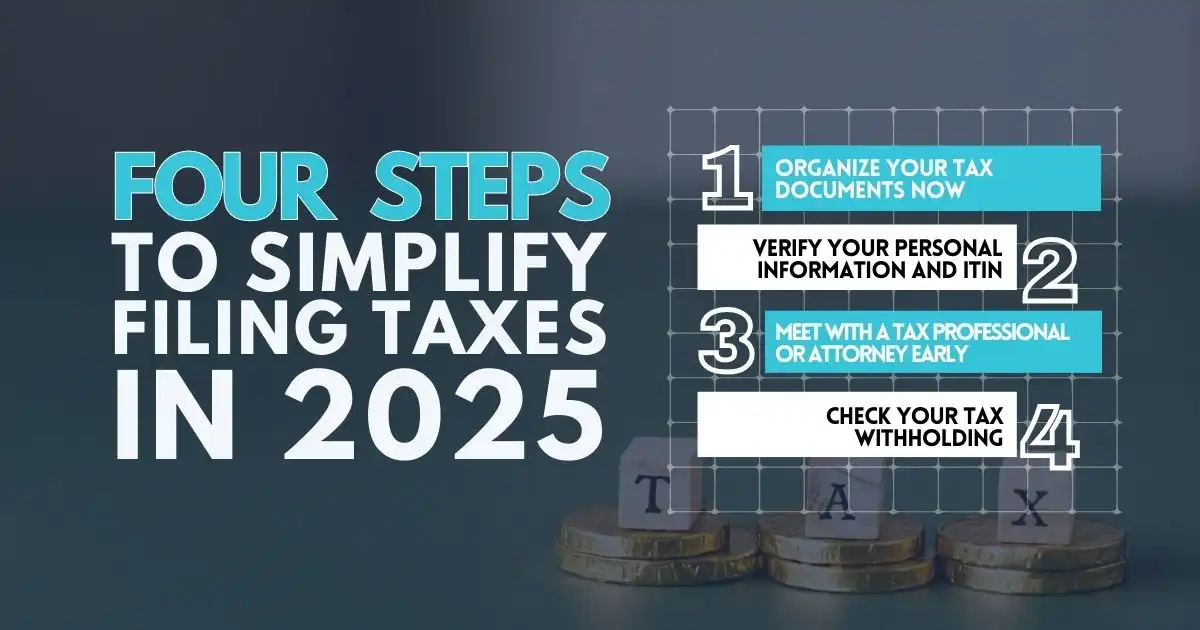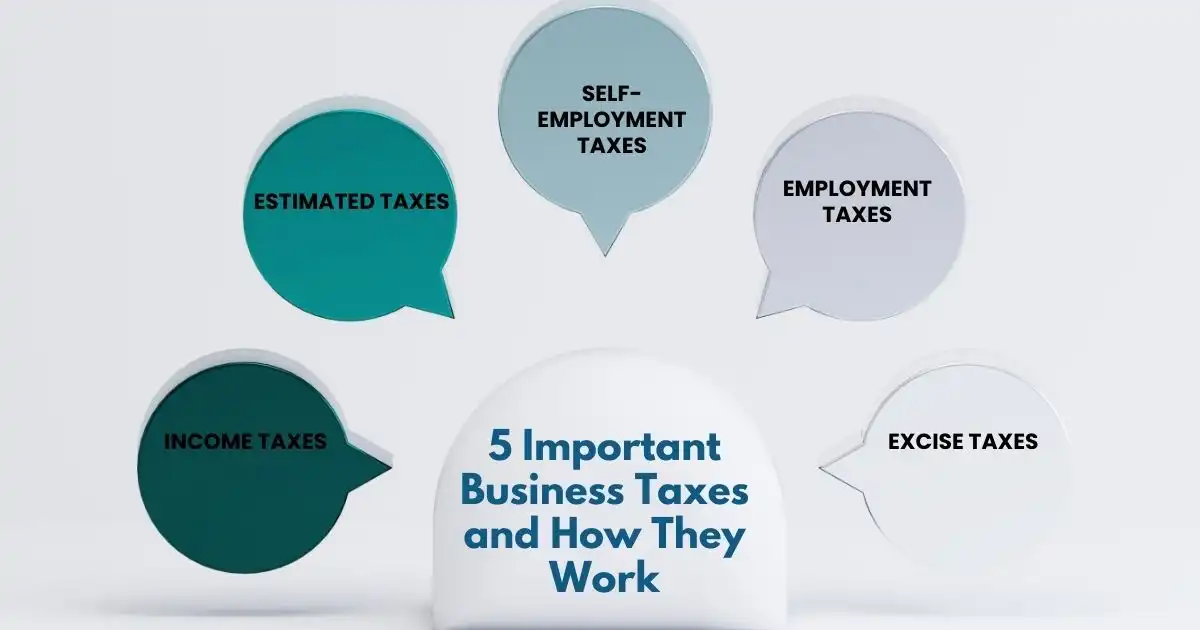Filing taxes can feel overwhelming, especially with a busy life. Balancing work, family, and other responsibilities often makes it hard to stay prepared for tax season.
It’s easy to feel uncertain or worry about mistakes. Did you gather the right documents and check for new rules that could affect your 2025 tax return?
The good news is tax preparation doesn’t have to be stressful. With a clear plan and some organization, you can tackle tax season with confidence and even find ways to maximize your refund. Filing on your own or with a professional becomes much smoother when you know what to prepare ahead of time.
What Are Taxes?
Taxes are money that people and businesses must pay to the government. The government uses this money to pay for things that help everyone, like fixing roads, building schools, and running programs like Social Security and Medicare.
In simple terms, taxes are part of the cost of living and doing business. Sometimes businesses pay taxes directly, and other times the cost is passed on to the people who buy their products.
There are different types of taxes, like income taxes (money taken from your paycheck), sales taxes (added when you buy things), and payroll taxes (paid by businesses for their workers).
Four Steps to Simplify Filing Taxes in 2025

Tax season may feel far away, but taking a little time now can make filing in 2025 much easier. Using any year-end downtime to get organized can save you a lot of stress later. Here’s how to get started:
1. Organize Your Tax Documents Now
Don’t wait until the last minute to gather what you need. Start pulling together important records like W-2 forms, 1099s, receipts, and mileage logs.
Be sure to include income from all sources, such as unemployment benefits, rental property earnings, and virtual currencies, since most income is taxable. Having everything ready and organized may also help you uncover deductions or credits you might have overlooked.
2. Verify Your Personal Information and ITIN
Make sure the IRS has the correct details for you. If you’ve moved, update your address. If your name changes due to marriage or divorce, notify the Social Security Administration. Also, check that your Individual Taxpayer Identification Number (ITIN) hasn’t expired. Getting this sorted now prevents delays when filing.
3. Meet with a Tax Professional or Attorney Early
Tax professionals get busier as tax season approaches, so schedule a consultation now. If you have questions about tax obligations, employee classifications, or potential red flags, addressing them early gives you time to resolve any issues. A proactive meeting now could save you headaches down the road.
4. Check Your Tax Withholding
Use the IRS Tax Withholding Estimator to make sure you’re withholding the right amount. If adjustments are needed, submit a new Form W-4 to your employer before the year ends. You might also consider making estimated tax payments now to avoid surprises in April.
By addresing these steps before the year ends, you’ll make the 2025 tax season smoother and less stressful. If you’re unsure about your tax situation, consult a knowledgeable tax attorney to get the guidance you need. Planning ahead now will save you time, effort, and possibly money next year.
5 Important Business Taxes and How They Work

Every business is required to pay taxes to the IRS and state tax offices. The type of taxes you owe depends on your business structure. Below are five common types of business taxes:
1. Income Taxes
Income taxes are based on your business’s earnings and are paid to both federal and state governments. The amount you owe depends on your business structure:
- C Corporations – These entities face double taxation, meaning they pay taxes twice—first on their profits and then again when distributing dividends to shareholders. Currently, the federal tax rate for C corporations is 21%.
- Flow-Through Entities – Sole proprietorships, partnerships, and S corporations are known as flow-through entities. These businesses do not pay federal income taxes at the company level. Instead, profits are passed through to the owners’ individual tax returns, where they are taxed based on the owner’s tax bracket.
2. Estimated Taxes
Estimated taxes are periodic payments businesses make throughout the year. This ensures taxes are paid gradually instead of as a lump sum during tax season.
- Who Pays Estimated Taxes? Businesses, including C Corporations, must pay quarterly estimated taxes if they expect to owe more than $500 for the year. Other business types, such as sole proprietorships and partnerships, also need to pay quarterly taxes under the same conditions.
- Purpose of Estimated Taxes – They prevent underpayment penalties and allow businesses to stay on top of their tax obligations.
3. Self-Employment Taxes
Self-employment taxes apply if you own a business alone or with a partner and actively manage its operations.
- Tax Components – These taxes cover Social Security and Medicare contributions. In 2024, the total self-employment tax rate is 15.3%, split into 12.4% for Social Security and 2.9% for Medicare.
- Income Threshold – If your business generates more than $400 in income, you must report it as self-employed income and pay self-employment taxes. This ensures you contribute to the same benefits as employees and employers.
4. Employment Taxes
If your business hires employees, you must manage payroll taxes. These taxes include:
- Social Security and Medicare – Employers match the Social Security and Medicare amounts withheld from employees’ paychecks.
- Federal and State Income Tax Withholding – Employers must deduct income taxes from employees’ wages based on the information provided in their W-4 forms.
- Federal Unemployment Tax (FUTA) – Employers pay 6% on the first $7,000 each employee earns. State unemployment taxes may also apply, depending on your location.
Proper management of employment taxes ensures compliance with federal and state laws while maintaining accurate records for employees.
5. Excise Taxes
Excise taxes are additional taxes that apply to specific goods, services, or activities. Your business may need to pay excise taxes if it:
- Provides communication or transportation services.
- Purchases fuel.
- Sells certain vehicles, such as trucks or trailers.
- Transports passengers on ships.
- Produces coal.
These taxes vary depending on your business activities, and a full list of applicable excise taxes can be found on the IRS website.
Don’t Wait for the Eleventh Hour
Tax filing isn’t a game of chance—it’s a strategy. Waiting until the last minute to prepare is like trying to build a house during a storm. Sure, you might finish, but not without stress and mistakes. Why risk missing deductions, filing errors, or worse—IRS penalties?
Start today. Pull out those W-2s, receipts, and records. Double-check your address and ITIN. Got questions? Book a meeting with a tax pro before their calendars vanish. These small steps now can mean a bigger refund—or at least fewer headaches come April.
Remember, tax season isn’t just about what you owe—it’s about what you can save. So, stop procrastinating. The clock is ticking, and the smartest moves are made before the deadline. Tackle tax season like a pro and set yourself up for success. The choice is yours: scramble later or stride confidently now.
FAQs
What are some effective end of year tax strategies to prepare for tax season 2025?
End-of-year tax strategies include maximizing contributions to retirement accounts, prepaying deductible expenses like property taxes, and reviewing your portfolio for potential tax-loss harvesting. Taking these steps before December 31 can help you reduce your taxable income and be better prepared for tax season 2025.
Can I claim last minute tax deductions before filing for tax season 2025?
Yes, some last minute tax deductions are still possible even close to the filing deadline. For example, making a contribution to a traditional IRA or a Health Savings Account (HSA) by the tax filing date may qualify as a deduction for the 2025 tax season.
What qualifies as last minute tax write offs for tax season 2025?
Last minute tax write offs can include charitable donations, certain business expenses, or purchasing qualifying equipment under Section 179 for small businesses. Ensure you keep proper documentation and act before filing your return to take advantage of these opportunities.
Why are end of year tax strategies important for tax season 2025?
End-of-year tax strategies are critical because they allow you to take proactive steps to lower your tax liability before the calendar year closes. By organizing records, adjusting withholding, or making deductible contributions, you set yourself up for a smoother and potentially more rewarding tax season in 2025.
